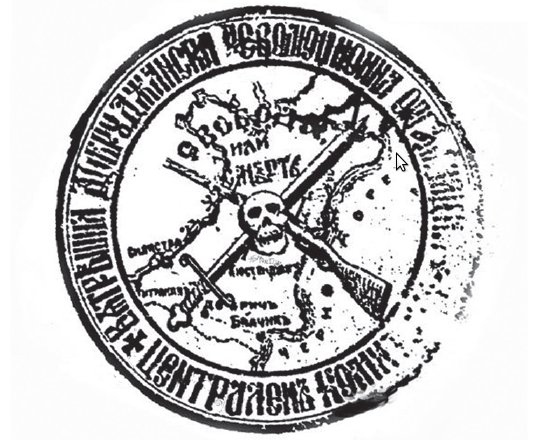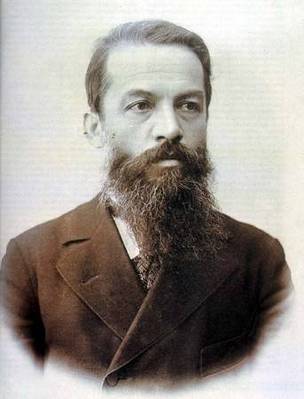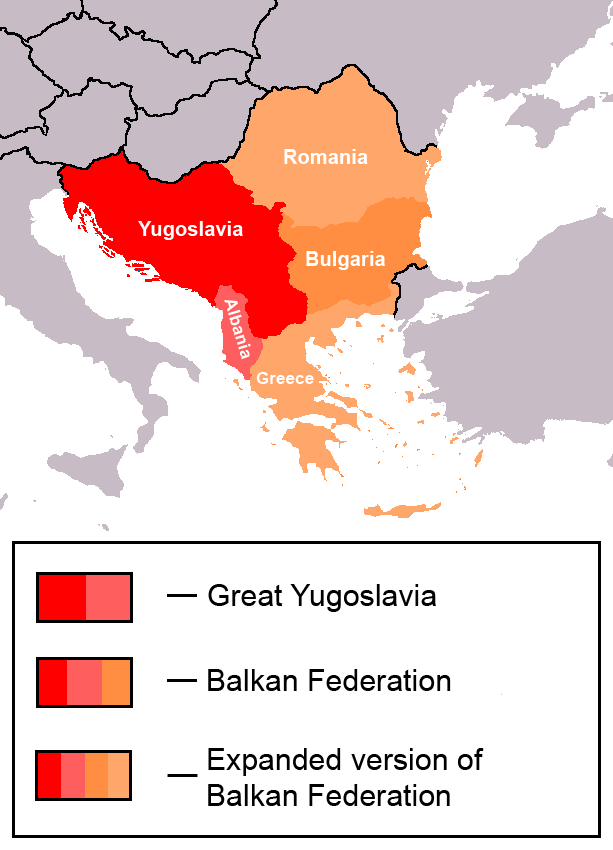|
Internal Dobrujan Revolutionary Organization
The Internal Dobrujan Revolutionary Organisation (; ) or IDRO was a Bulgarian nationalist and revolutionary organisation active in Romanian Dobruja from 1923 to 1940. It was labeled a terrorist organization by the Romanian government, though in Bulgaria it was regarded as a liberation movement. The organisation was founded in 1923 under the leadership of Docho Mihaylov and on the basis of the Great Convention of Dobruja (Велик добруджански събор), a Bulgarian political organisation established in 1919 to fight against Romanian rule in Southern Dobruja. The IDRO detachments fought against the widespread brigandage in the region, as well as the Romanian administration in the region. Like the Internal Macedonian Revolutionary Organisation in Macedonia and the Internal Thracian Revolutionary Organisation in Thrace, IDRO demanded political autonomy of Dobruja under the mandate of the League of Nations raising the slogan for the establishment of an "autonomous Dobr ... [...More Info...] [...Related Items...] OR: [Wikipedia] [Google] [Baidu] |
Bulgarian Communist Party
The Bulgarian Communist Party ( Bulgarian: Българска комунистическа партия (БΚП), Romanised: ''Bŭlgarska komunisticheska partiya''; BKP) was the founding and ruling party of the People's Republic of Bulgaria from 1946 until 1990, when the country ceased to be a socialist satellite state of the Soviet Union. The party had dominated the Fatherland Front, a coalition that took power in 1944, late in World War II, after it led a coup against Bulgaria's tsarist regime in conjunction with the Red Army's crossing of the border. It controlled its armed forces, the Bulgarian People's Army. The BCP was organized on the basis of democratic centralism, a principle introduced by the Russian Marxist scholar and leader Vladimir Lenin, which entails democratic and open discussion on policy on the condition of unity in upholding the agreed-upon policies. The highest body of the BCP was the Party Congress, convened every fifth year. When the Party Congress wa ... [...More Info...] [...Related Items...] OR: [Wikipedia] [Google] [Baidu] |
History Of Dobruja
Dobruja or Dobrudja (; or ''Dobrudža''; , or ; ; Dobrujan Tatar: ''Tomrîğa''; Ukrainian language, Ukrainian and ) is a Geography, geographical and historical region in Southeastern Europe that has been divided since the 19th century between the territories of Bulgaria and Romania. It is situated between the lower Danube, Danube River and the Black Sea, and includes the Danube Delta, the Romanian coast, and the northernmost part of the Bulgarian Black Sea Coast, Bulgarian coast. The territory of Dobruja is made up of Northern Dobruja, which is a part of Romania, and Southern Dobruja, which is a part of Bulgaria. The territory of the Romanian region Dobrogea is organised as the counties of Constanța County, Constanța and Tulcea County, Tulcea, with a combined area of and, , a population of slightly less than 850,000. Its main cities are Constanța, Tulcea, Medgidia, and Mangalia. Dobrogea is represented by dolphins in the coat of arms of Romania. The Bulgarian region Do ... [...More Info...] [...Related Items...] OR: [Wikipedia] [Google] [Baidu] |
1920s In Romania
Nineteen or 19 may refer to: * 19 (number) * One of the years 19 BC, AD 19, 1919, 2019 Films * ''19'' (film), a 2001 Japanese film * ''Nineteen'' (1987 film), a 1987 science fiction film * ''19-Nineteen'', a 2009 South Korean film * ''Diciannove'', a 2024 Italian drama film informally referred to as "Nineteen" in some sources Science * Potassium, an alkali metal * 19 Fortuna, an asteroid Music * 19 (band), a Japanese pop music duo Albums * ''19'' (Adele album), 2008 * ''19'', a 2003 album by Alsou * ''19'', a 2006 album by Evan Yo * ''19'', a 2018 album by MHD * ''19'', one half of the double album ''63/19'' by Kool A.D. * ''Number Nineteen'', a 1971 album by American jazz pianist Mal Waldron * ''XIX'' (EP), a 2019 EP by 1the9 Songs * "19" (song), a 1985 song by British musician Paul Hardcastle * "Stone in Focus", officially "#19", a composition by Aphex Twin * "Nineteen", a song from the 1992 album ''Refugee'' by Bad4Good * "Nineteen", a song from the 2001 al ... [...More Info...] [...Related Items...] OR: [Wikipedia] [Google] [Baidu] |
1920s In Bulgaria
The 1920s in the Kingdom of Bulgaria. Incumbents * Tsar of Bulgaria: Boris III (1918–1943) * Prime Minister of Bulgaria: ** Aleksandar Stamboliyski (1919–1923) ** Aleksandar Tsankov (1923–1926) ** Andrey Lyapchev (1926–1931) Events 1920 * 28 March – The Bulgarian Agrarian National Union won 110 of the 229 seats in the parliament following parliamentary elections. Voter turnout was 77.3%.Nohlen & Stöver, p379 1921 * The Macedonian Federative Organization (MFO) was established in Sofia by former Internal Macedonian Revolutionary Organization (IMRO) left wing's activists. * The first organized football championship is held in Sophia. 1922 * 19 November – A referendum on the prosecution of war criminals was held and approved by 74.33% of voters.Bulgarien, 19. November 1922: ... [...More Info...] [...Related Items...] OR: [Wikipedia] [Google] [Baidu] |
Bulgarian Revolutionary Organisations
Bulgarian may refer to: * Something of, from, or related to the country of Bulgaria * Bulgarians, a South Slavic ethnic group * Bulgarian language, a Slavic language * Bulgarian alphabet * A citizen of Bulgaria, see Demographics of Bulgaria * Bulgarian culture * Bulgarian cuisine, a representative of the cuisine of Southeastern Europe See also * * List of Bulgarians * Bulgarian name, names of Bulgarians * Bulgarian umbrella, an umbrella with a hidden pneumatic mechanism * Bulgar (other) * Bulgarian-Serbian War (other) The term Bulgarian-Serbian War or Serbian-Bulgarian War may refer to: * Bulgarian-Serbian War (839-842) * Bulgarian-Serbian War (853) * Bulgarian-Serbian wars (917-924) * Bulgarian-Serbian War (1330) * Bulgarian-Serbian War (1885) * Bulgarian ... {{disambiguation Language and nationality disambiguation pages ... [...More Info...] [...Related Items...] OR: [Wikipedia] [Google] [Baidu] |
Internal Western Outland Revolutionary Organisation
The Western (Bulgarian) Outlands () is a term used in Bulgarian to denote several regions located in ex-Yugoslavia, today southeastern Serbia and southeastern North Macedonia, that were traditionally part of Bulgaria and which were predominantly inhabited by ethnic Bulgarians ( Bulgarians in Serbia, Bulgarians in North Macedonia). The territories in question were ceded by Bulgaria to the Kingdom of the Serbs, Croats and Slovenes in 1920 as a result of the Treaty of Neuilly, following the World War I. According to the 2022 Serbian census, two municipalities, Bosilegrad and Dimitrovgrad, are populated primarily by ethnic Bulgarians. Etimology Serbia deems the term controversial, considering that referring to parts of a neighboring country's territory as "western outlands" can imply territorial claims. For this reason, the term has not been used by Belgrade in contacts with Sofia since 1948. It was mentioned once, in the 1947 Bled Agreement by Josip Broz Tito and Georgi ... [...More Info...] [...Related Items...] OR: [Wikipedia] [Google] [Baidu] |
Internal Revolutionary Organisation
The Internal Revolutionary Organisation (IRO; ) was a Bulgarians, Bulgarian revolutionary organisation founded and built up by Bulgarian revolutionary Vasil Levski between 1869 and 1871. The organisation represented a network of regional revolutionary committees which were governed by a Central Committee in the town of Lovech. The foundation of IRO reflected Levski's ideas that the centre of revolutionary activity be transferred from the Bulgarian emigrant circles in Romania to Bulgaria proper. In 1871 Levski prepared the Charter of the organisation in the spirit of his own political views: liberation of Bulgaria from the Ottoman Empire, Ottomans through a nationwide revolution and establishment of the country as a democratic republic with guarantees for the equality of all of its citizens regardless of their ethnicity or religion. By the end of 1872, both Levski and Lyuben Karavelov, the chairman of the Bulgarian Revolutionary Central Committee (BRCC), which was situated in Buchare ... [...More Info...] [...Related Items...] OR: [Wikipedia] [Google] [Baidu] |
Treaty Of Craiova
The Treaty of Craiova (; ) was signed on 7 September 1940 and ratified on 13 September 1940 by the Kingdom of Bulgaria and the Kingdom of Romania. Under its terms, Romania had to allow Bulgaria to retake Southern Dobruja, which Romania had gained after the 1913 Second Balkan War. Bulgaria had to pay 1 million lei as compensation for the investment provided to the region by Romania. The treaty stipulated that a population exchange between Bulgaria and Romania had to be made. Thus, 103,711 Romanians, Aromanians and Megleno-Romanians living in Southern Dobruja were forced to move to Northern Dobruja (part of Romania), and 62,278 Bulgarians located in the north were forcibly moved to the south. The Dobrujan Germans, who were affected by these relocations, would eventually be transferred to Nazi Germany. Unlike all other territorial treaties mediated by Nazi Germany, the Treaty of Craiova was not reversed by the Allies after World War II and Southern Dobruja remained Bulgari ... [...More Info...] [...Related Items...] OR: [Wikipedia] [Google] [Baidu] |
Soviet Union
The Union of Soviet Socialist Republics. (USSR), commonly known as the Soviet Union, was a List of former transcontinental countries#Since 1700, transcontinental country that spanned much of Eurasia from 1922 until Dissolution of the Soviet Union, it dissolved in 1991. During its existence, it was the list of countries and dependencies by area, largest country by area, extending across Time in Russia, eleven time zones and sharing Geography of the Soviet Union#Borders and neighbors, borders with twelve countries, and the List of countries and dependencies by population, third-most populous country. An overall successor to the Russian Empire, it was nominally organized as a federal union of Republics of the Soviet Union, national republics, the largest and most populous of which was the Russian SFSR. In practice, Government of the Soviet Union, its government and Economy of the Soviet Union, economy were Soviet-type economic planning, highly centralized. As a one-party state go ... [...More Info...] [...Related Items...] OR: [Wikipedia] [Google] [Baidu] |
Balkan Communist Federation
In late 19th and throughout the 20th century, the establishment of a Balkan Federation had been a recurrent suggestion of various political factions in the Balkans. The concept of a Balkan federation emerged in the late 19th century among left-wing political forces in the region. The central aim was to establish a new political unity: a common federal republic unifying the Balkan Peninsula on the basis of internationalism, socialism, social solidarity, and economic equality. The underlying vision was that, despite differences among the region's ethnic groups, the historical need for emancipation was a common basis for unification. This political concept went through three phases in its development. In the first phase the idea was articulated as a response to the collapse of the Ottoman Empire at the beginning of the 20th century. In the second phase, mostly through the interwar period (1919–1936), the idea of the Balkan federation was taken up by the Balkan Communist parties. ... [...More Info...] [...Related Items...] OR: [Wikipedia] [Google] [Baidu] |


